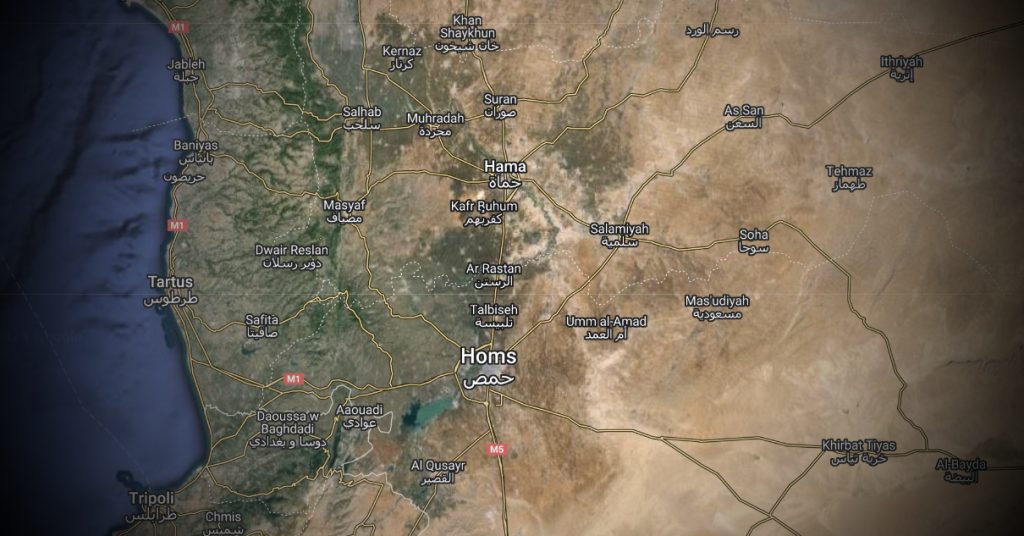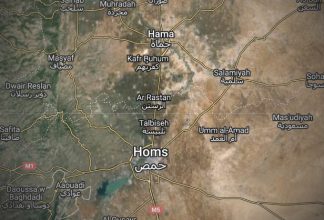Report 5: The Hearing of the Defendant

The previous report encompassed summaries of the plaintiffs’ hearings. This report will address the hearing of the defendant in Court, which took place on 29 April and 6 May. An Arabic version of the report can be found here.
Opening Statements by the Defendant
Prior to commencing the hearing of the defendant, the defendant was afforded the opportunity to articulate his stance regarding the criminal charges leveled against him. He provided an account of his character and his version of the events in Syria during the period covered by the indictment. In his opening statement, the defendant underscored his status as a deserter from the Syrian army. Despite having been a part of the army, he asserted his dissatisfaction with the actions perpetrated against protestors who opposed the Assad regime, as soon as he became aware of these events. Regarding his delay in deserting from the army, he cited the oppressive atmosphere within the Syrian military, which stifled dissent against the army’s tactics by posing threats to the lives of dissenters. Upon identifying an opportunity that wouldn’t endanger the lives of him and his family, the defendant executed his decision to defect from the military.
Further elucidating his innocence, the defendant pointed to his lack of influence over decision-making within the Syrian military hierarchy. Firstly, he emphasized his identity as a Sunni Muslim in an Alawite-dominated army, which compromised his authority and role as a high-ranking military officer. He also asserted that his religious affiliation subjected him to close scrutiny, rendering it impossible for him to deviate from the directives of the military management. Secondly, he highlighted the limited influence of his position as the head of the armament unit. According to the defendant, this role conferred no decision-making authority and was strictly administrative.
The Prosecution’s Hearing of the Defendant
Military Structure and the Mandate of the 11th Division
To illustrate the geographical mandate of the 11th division, the prosecution exhibited multiple maps depicting the regions of Homs and Hama. The defendant was tasked with indicating where each brigade within the 11th division operated, along with the headquarters’ location. Upon the defendant identifying the areas of Homs and Hama as under the geographic mandate of the 11th division, the prosecution concluded that the defendant concurred with the prosecution’s description of the terrain. The prosecution’s placement of significant locations on the map, such as the division’s headquarter in Shinshar in Homs, was confirmed by the defendant.
In addressing the military structure within the 11th division, the defendant acknowledged the presence of four divisions within the 3rd Corps, each containing brigades and functional units. He agreed that operational and functional units were integrated at all levels of this structure. The defendant claimed that although his explanation of the military structure aligned with that of the prosecutor, it did not imply that the army’s functions during the period of the indictment adhered to the rules suggested by the structure. He contended that he was merely elucidating the theoretical functioning of the army, not its practical application during this period. He concluded that the army could deviate from the intended structure and chain of command, particularly during times of armed conflict.
The prosecution questioned the defendant regarding the role of the armament unit within the military structure. As the prosecution claimed that functional units provided support for division management, the defendant refuted this by highlighting their lack of decision-making authority. Presenting a hypothetical scenario where functional units were absent, the prosecution asked the defendant whether the military management’s operational objectives could still have been achieved. The defendant deemed this scenario speculative and beyond his ability to answer. Furthermore, he stressed that each unit operated within its designated sphere of responsibility and expertise, clarifying that the armament unit was not responsible for, nor any knowledge of, events in the field.
The Role of a Brigadier-General in the Syrian Army
The prosecution asked about the status and benefits of the position as Brigadier-General in the Syrian army. The questions sought to uncover the salary, the status of the position in the army and in society as a whole as well as additional benefits of the role. The defendant asserted that his position was that of a lower rank and entailed no additional benefits beyond two cars, emphasizing that this provision was specific to the role of a Brigadier-General and did not extend to him personally.
The prosecution contested the defendant’s portrayal of himself as a mere military officer by citing an answer provided by the defendant during his asylum interview at the Migration Agency. In his statement, he claimed to have held a position equivalent to that of a prince or minister. In response, the defendant sought to diminish the significance of this analogy, asserting that within the Syrian army, all ranks of Brigadier-General and above were referred to as “prince-designations”. It merely denoted the rank and did not indicate any actual princely status.
The Defendant’s Knowledge of the Events on the Ground
The prosecution extensively questioned the defendant regarding his knowledge of the quantities of arms and ammunition utilized in combat situations during the time period that is relevant for the indictment, referencing information about requests for replenishment from brigades being submitted to him.
The defendant confirmed that when ammunition was depleted, a request for replenishment was submitted to him. The prosecution asked for clarification of whether these requests explicitly detailed the type and quantity of materials needed, whereupon the defendant confirmed that they did. Additionally, the prosecution made inquiries about the frequency of refill requests, citing statements from the defendant’s police interrogations. In these statements, the defendant remarked on an increased frequency of requests during 2011 and 2012 compared to preceding years. The prosecution also underscored that he had mentioned that the requests during this period regarded requests for ammunition suited for light weapons. In response, the defendant acknowledged the accuracy of his statements to the police but implied that they pertained to the general context of requests rather than specifically to this period.
The prosecution further referred to a CIJA document citing a conversation between the defendant and an anonymous counterpart in which the defendant had reflected over the large amount of ammunition requested by a brigade after an operation in Ar-Rastan and Talbiseh. The defendant claimed that the conversation had not taken place and that he had not shared any such information. Any knowledge he may have had of an operation in Ar-Rastan and Talbiseh was gained though media coverage.
During a subsequent section of the interrogation, the defendant’s overall awareness of the escalating turmoil was addressed. Throughout the questioning, the defendant consistently asserted that his knowledge of the situation was derived solely from monitoring international news sources. According to his testimony, the army as a whole was never formally informed of a state of emergency, purportedly due to strict confidentiality measures within the military. The prosecution argued against this statement by referring to a statement by the defendant in his asylum interview in which he stated that the army was informed of the escalating turmoil three months into the fighting. The defendant claimed that his statement had concerned the general awareness in the army and he had not meant to be indicating that any such information was explicitly given by the military management. When asked about the army’s role in suppressing the demonstrations, the defendant claimed to have no knowledge of why they were involved or how they were operating as he had not been operating in the field and therefore had no knowledge of the events taking place there.
In summary, the defendant asserted that he had not, in his military capacity, acquired any knowledge regarding the severity of the events transpiring on the ground. Neither the internal information flow within the army nor awareness of the quantity or nature of arms and ammunition deployed during operations provided him with any information that could have been used to draw conclusions about any potential war crimes committed.
Deserting from the Army
Addressing the defendant’s desertion from the army, the prosecution posed questions regarding the time of the decision, the execution of the decision, the timing of actually deserting and the creation of an opposition group by the defendant.
The prosecution queried the defendant on the timing of his decision to desert from the army. The defendant responded that while he could not pinpoint the exact date, he formulated the decision as he gained insight into the army’s conduct. He explained that he waited for the right moment to act, prioritizing the safety of his family. Pressing the defendant further, the prosecution referred to his asylum interview where he mentioned becoming aware of the army’s actions approximately three months into the revolution, around the summer of 2011. Hence, the prosecution questioned why the defendant waited until the summer of 2012 to desert. The defendant contended that the timing of the decision was less crucial than the opportunity to carry it out, which arose in the summer of 2012.
A set of questions by the prosecution covered the defendant’s involvement in an opposition group established by the defendant upon his arrival in Turkey. The prosecution asked about the group’s establishment and the election of the defendant as the founder of the group. The defendant emphasized his involvement in forming the battalion solely as a means to support his family. Although initially asked to co-found the battalion due to his military experience, he claimed to have had no further responsibilities. In response to the defendant’s claim of not having had additional army duties within the battalion, the prosecution presented evidence including a video of the defendant announcing the battalion’s creation and documents from 2013 detailing arms and ammunition procurement, signed by the defendant under the title “Armament Administration Director.” Based on this evidence, the prosecution inferred that the defendant held other responsibilities stemming from his former position as head of the armament unit in the Syrian army, a claim the defendant refuted.
The Defense Counsel’s Hearing of the Defendant
During the defense counsel’s hearing with the defendant, a significant portion of the questioning focused on his transfer to another military post in June 2012. The counsel inquired about the reason for his transfer, to which the defendant responded that the management lacked trust in him. He further elaborated that his religious affiliation as a Sunni Muslim played a significant role in the lack of trust in him. Furthermore, the counsel asked whether he commenced his new position upon transfer, prompting the defendant to inform the court that he never started because the transfer afforded him the opportunity he had been awaiting to desert from the army. In response to the counsel’s inquiry about the reactions to his absence from the new position, the defendant clarified that being transferred to such a position essentially meant one was not required and therefore not closely monitored. The lack of oversight allowed him to abstain from attending the job, thereby granting him the time needed to arrange his departure from the country.
The counsel further questioned the defendant about his knowledge of arms and ammunition used in combat and the request procedure within the 11th division. He clarified that requests did not specify the purpose of the ammunition, and that he lacked authority to modify or approve the requests. He solely forwarded requests to the division management. Reports on ammunition usage varied based on the need for updates and were not on a pre-set schedule. Any assertation by witnesses on the frequency of requests were theoretical and were not based on experience from the Syrian army, he claimed.
Next report
The upcoming report will cover the initial hearings of witnesses, which took place on 3, 4, 5 and 6 May.
